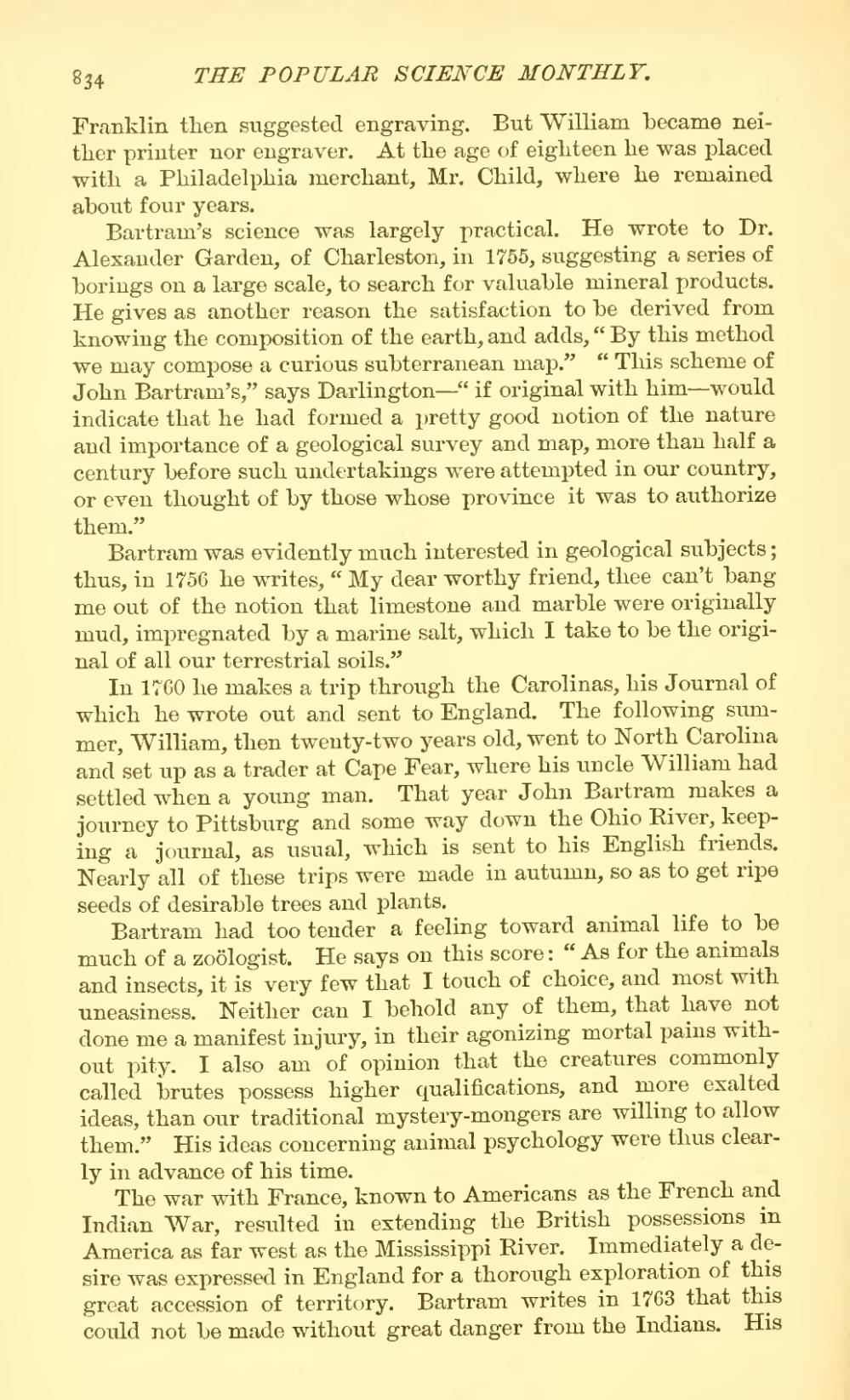Franklin then suggested engraving. But William became neither printer nor engraver. At the age of eighteen he was placed with a Philadelphia merchant, Mr. Child, where he remained about four years.
Bartram's science was largely practical. He wrote to Dr. Alexander Garden, of Charleston, in 1755, suggesting a series of borings on a large scale, to search for valuable mineral products. He gives as another reason the satisfaction to be derived from knowing the composition of the earth, and adds, "By this method we may compose a curious subterranean map." "This scheme of John Bartram's," says Darlington—"if original with him—would indicate that he had formed a pretty good notion of the nature and importance of a geological survey and map, more than half a century before such undertakings were attempted in our country, or even thought of by those whose province it was to authorize them."
Bartram was evidently much interested in geological subjects; thus, in 1756 he writes, "My dear worthy friend, thee can't bang me out of the notion that limestone and marble were originally mud, impregnated by a marine salt, which I take to be the original of all our terrestrial soils."
In 1760 he makes a trip through the Carolinas, his Journal of which he wrote out and sent to England. The following summer, William, then twenty-two years old, went to North Carolina and set up as a trader at Cape Fear, where his uncle William had settled when a young man. That year John Bartram makes a journey to Pittsburg and some way down the Ohio River, keeping a journal, as usual, which is sent to his English friends. Nearly all of these trips were made in autumn, so as to get ripe seeds of desirable trees and plants.
Bartram had too tender a feeling toward animal life to be much of a zoölogist. He says on this score: "As for the animals and insects, it is very few that I touch of choice, and most with uneasiness. Neither can I behold any of them, that have not done me a manifest injury, in their agonizing mortal pains without pity. I also am of opinion that the creatures commonly called brutes possess higher qualifications, and more exalted ideas, than our traditional mystery-mongers are willing to allow them." His ideas concerning animal psychology were thus clearly in advance of his time.
The war with France, known to Americans as the French and Indian War, resulted in extending the British possessions in America as far west as the Mississippi River. Immediately a desire was expressed in England for a thorough exploration of this great accession of territory. Bartram writes in 1763 that this could not be made without great danger from the Indians. His
